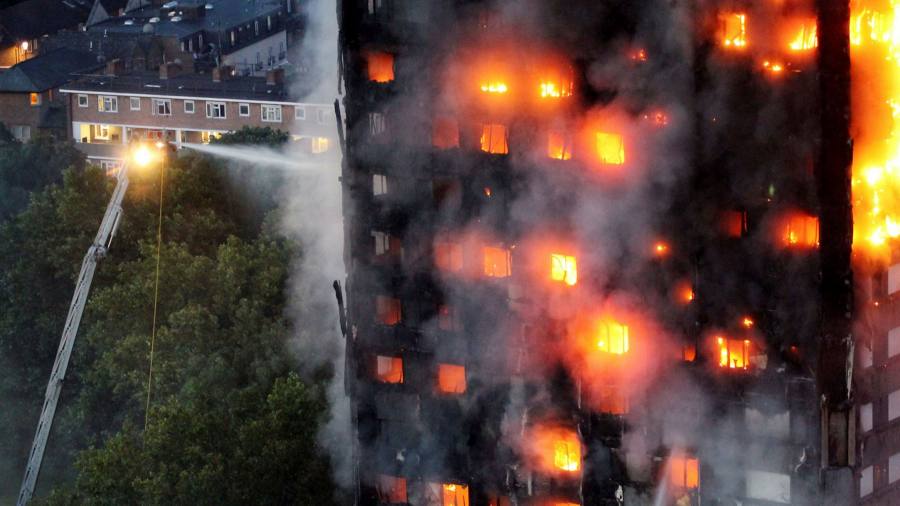[ad_1]
London’s fire brigade can still not be sure its response to a repeat of the Grenfell Tower fire would be significantly better than its heavily criticised handling of the deadly blaze in June 2017, a senior watchdog figure has said.
Matt Parr, HM inspector of fire and rescue services, made the remark ahead of the publication on Friday of a report on progress by the London Fire Brigade (LFB) towards implementing the recommendations of the first phase of Sir Martin Moore-Bick’s inquiry into the fire, which killed 72 people.
The inquiry report, published in October 2019, was fiercely critical of the brigade’s response on the night of the fire, especially the prolonged advice to residents to remain in their flats after it became clear the blaze had not been contained.
Moore-Bick’s report contained 29 recommendations aimed either at all of England’s fire and rescue services or specifically the LFB. The latest report found that action on only four recommendations had been completed and that progress on only another seven was on track, while work on all the remaining 18 had been delayed.
In some cases this was because of the demands of responding to the coronavirus pandemic, it added.
Parr said assurance processes needed to be improved to ensure that those changes the brigade had made since June 2017 would result in a better response to a fire.
“Despite doing all this work, the brigade still isn’t in a position to assure itself that, if something similar to Grenfell happened again, its response would be vastly improved,†Parr said.
Among the delayed responses was action to update LFB’s policy on advice to people in burning high-rise buildings.
Moore-Bick had recommended that this should be changed to ask people to leave burning high-rise buildings when it was clear that a blaze had not been contained.
During the fire, commanders stuck rigidly to a policy of telling residents to stay in their flats, which was based on the idea that a fire would never spread through a whole building. The stance almost certainly added to the death toll.
Parr acknowledged a “change of emphasis†and that commanders were being encouraged to take decisions about whether to evacuate buildings on a more balanced basis. But a clear new policy had not been implemented.
Parr said: “I think the obvious question [to the brigade] is, ‘here we are nearly four years later. Isn’t [this] something you should have been getting along with?’â€
Lord Stephen Greenhalgh, the fire minister, said the government knew lessons needed to be learnt, including for the LFB. “I’m encouraged to see that progress is being made despite the challenges of the pandemic, but we know there is more to do,†he said.
The report is published two days after the government announced £3.5bn in funding to help residents tackle another legacy of the fire — the discovery that cladding on thousands of high-rise buildings poses a risk of a repeat of the Grenfell disaster.
The second phase of Moore-Bick’s inquiry has this week been hearing from suppliers of the cladding and insulation used on the building as it seeks to establish what the companies knew about the flammability of the materials that allowed the fire to spread.
On Wednesday and Thursday, the inquiry heard from Deborah French, who was UK sales manager for US cladding manufacturer Arconic from 2007 to 2014.
Arconic provided cladding for Grenfell which the inquiry subsequently determined “acted as a source of fuel†for the fire and was “the principal reason why the flames spread so rapidlyâ€.
The inquiry heard this week that Arconic tried to “keep secret†for commercial reasons the differences between the material it sold for use on Grenfell and a more fire-resistant version.
French told the inquiry that she knew the product used on Grenfell “was and is flammable†but did not specifically explain that fact to customers.
Following completion of his report, Parr wrote a formal “cause of concern†letter to the LFB, expressing his worries about the slow progress.
[ad_2]
Source link






